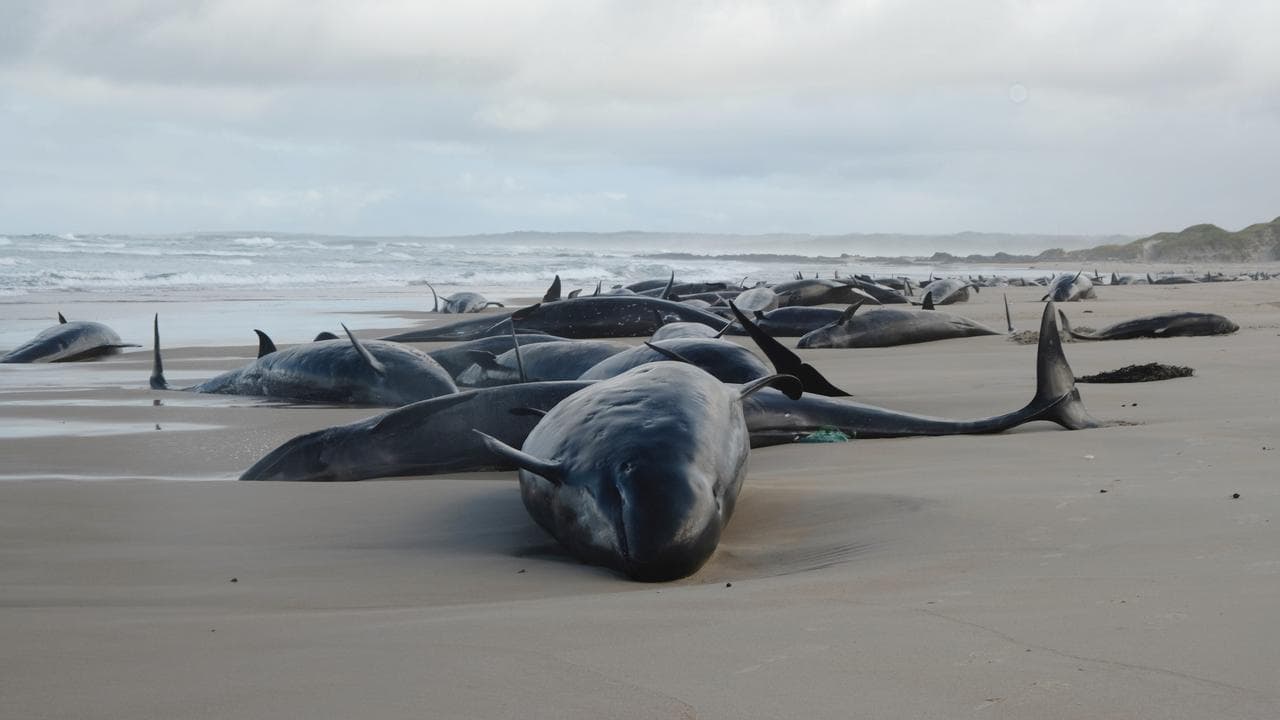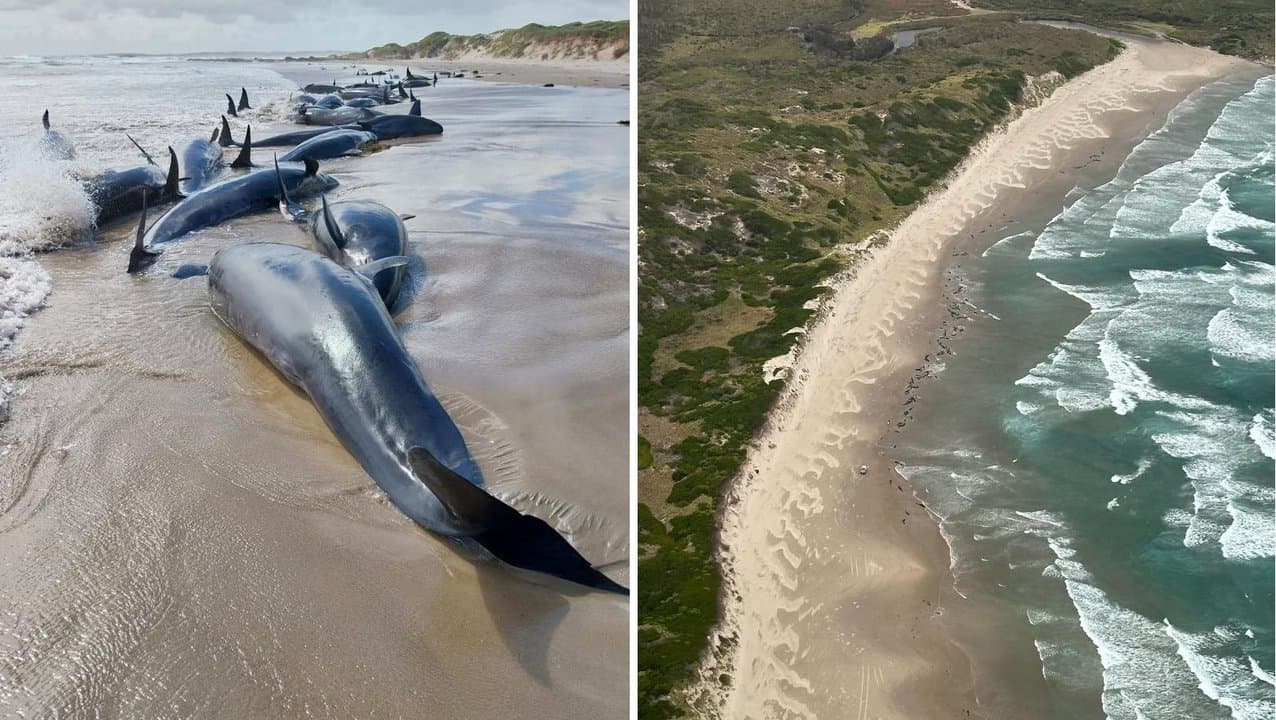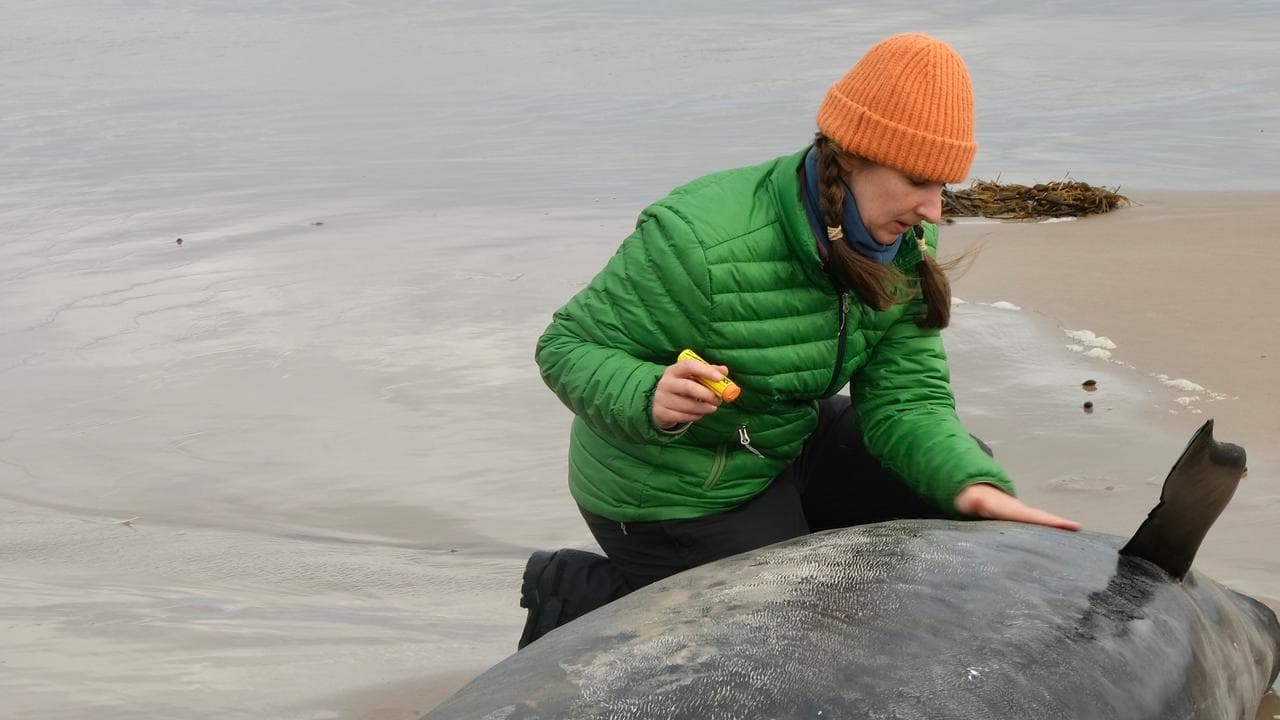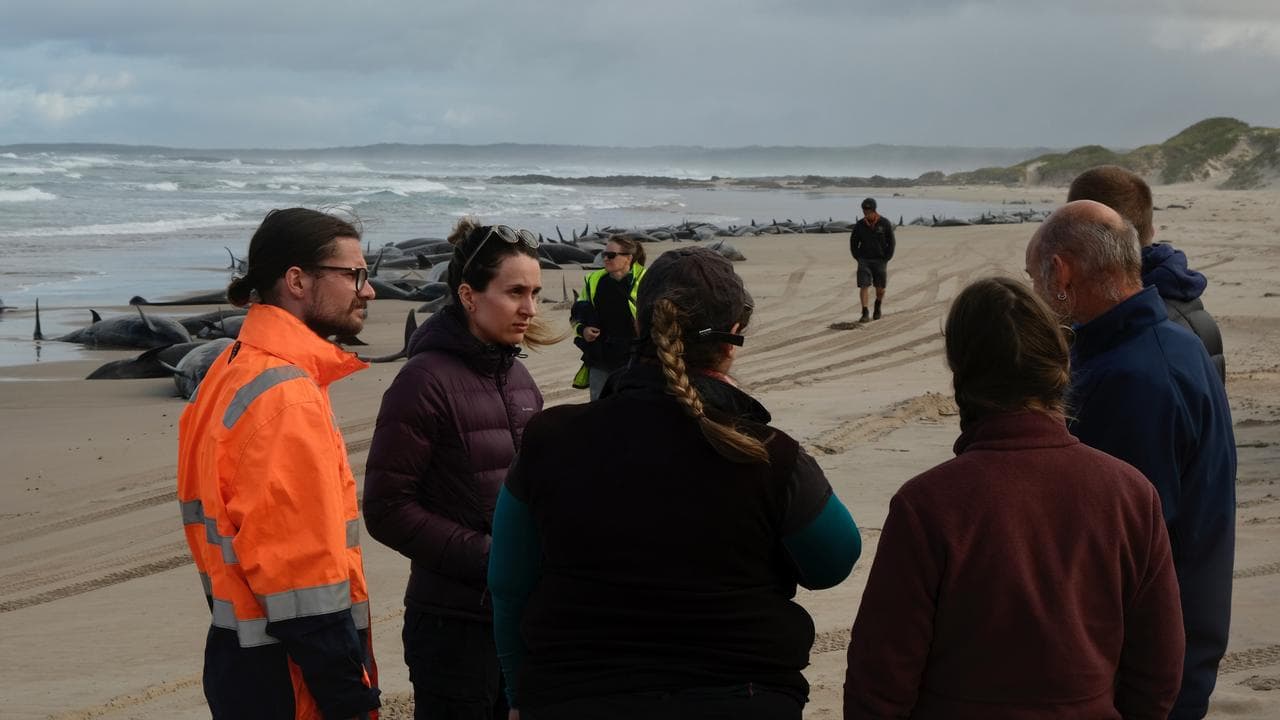
Authorities will begin the bleak task of euthanising dozens of false killer whales after 157 beached on Tasmania's remote west coast - a hotspot for strandings.
Crews tried unsuccessfully to re-float two of the mammals on Wednesday after members of the public reported the group had become stuck near Arthur River the previous night.
About 90 of the whales still alive on the beach will be euthanised over coming days.
Rough seas, windy conditions and rugged terrain have complicated the rescue and hampered efforts to get equipment to the site.
Tasmanian Parks and Wildlife Service incident controller Shelley Graham said the whales they tried to re-float continually re-stranded.
"The swell is up quite a lot. It is quite windy and rough and the animals can’t get past the (surf) break to get out," she told reporters.
"It is really unfavourable for getting the whales out into the water unfortunately.
"Following expert veterinarian assessments we have decided euthanasia is necessary for animal welfare reasons."

Local resident Steve Flint contacted authorities after he and his wife saw the whales on Tuesday night, following a call from his son who was there fishing.
"It was pretty horrific. At one stage I had to turn my back on it," he said.
"It looked to me like they were thrashing around and trying to go out. It’s a terrible thing to witness.
"It was running through my mind what we could do … there were two of us and they’re quite big animals. I thought there was no way we’d be able to turn them around."
Mr Flint said it was only the second time he had seen whales near the mouth of the Arthur River in his 40 years visiting the spot.
The whales will be euthanised by firearm and in accordance with world-best practice, authorities say.

Tasmania's west coast is a stranding hotspot, with Australia's worst beaching of 470 pilot whales occurring south of the Arthur River at Macquarie Harbour in 2020.
In 2022, about 230 pilot whales got into trouble in shallow water at the heads of Macquarie Harbour.
It is the first mass stranding of false killer whales - despite their name, technically a species of dolphin - in Tasmania in about 50 years.
Misadventure was the likely reason for the stranding, state environment department wildlife biologist Kris Carlyon said.
"(This species has) really strong social bonds and it can be one individual that is sick or disorientated that can draw the rest of the pod ashore," he said.
"We have a really complex coast in Tasmania - the west coast is where we tend to see the majority of the strandings.
"It is a really complex area for these guys to navigate … any mistake can bring the group ashore."

Mr Carlyon said the stranding location was the trickiest he had encountered in his 16 years in the job and conditions were becoming unsafe for staff.
"It's a big decision (to euthanise). We've had significant success re-floating mass stranded whales, typically we do get some away," he said.
"To be faced with a situation where we don't have any options to do that, is hard."
"(But) the animals are way outside their comfort zone ... the longer they're on shore, the more stressed they’ll become."
The whale carcasses could be left on the beach because of the remote location and a reluctance to bring machinery into the area with nearby sites of Aboriginal significance.




